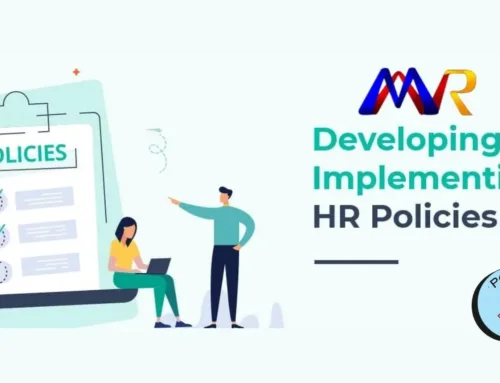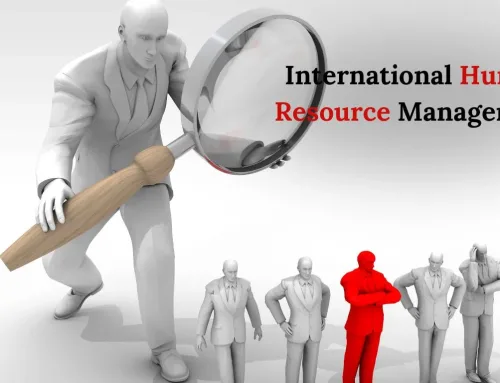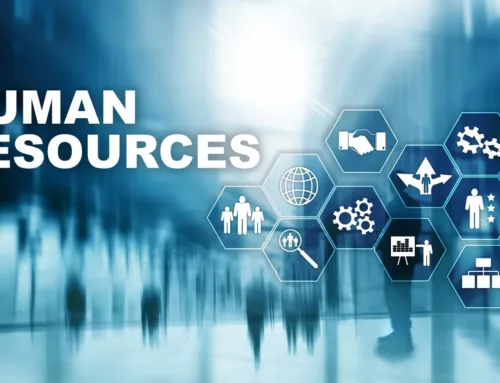Human resources (HR) professionals are essential in keeping your company operating. Their tasks may include hiring and firing new hires, training programs, and other administrative duties. Human resources (HR) comprises the workforce of an organization, business sector, industry, or economy.
Human Resources also works closely with management to craft policies that cordial employee/employer relations.
HR managers are not just reactive to legal issues; they proactively stay current with federal and state employment and workplace safety laws. This commitment to staying updated helps them avoid costly legal fees and penalties for their company, ensuring the business operates within the legal framework.
Definition of Human Resources (HR)
Human Resources (HR) professionals are not just responsible for hiring employees, training them, and implementing compliance policies. They are strategic partners in any business’s success, whether the department comprises one individual or several highly trained experts. HR plays a crucial role in shaping the organizational structure, resolving workplace issues, and adhering to federal regulations. Their contributions are vital to the smooth functioning and growth of the business.
The primary function of human resources is to identify the type and number of employees a company needs to reach its strategic goals. This enables HR to inform recruitment, selection, performance management, learning and development initiatives, and recruitment plans for each individual employee.
Human resource management plays an essential role in setting compensation levels, ensuring employees receive competitive wages through salary surveys, establishing pay ranges for individual jobs, and factoring in benefits such as company-paid healthcare, retirement contributions, vacation days, and sick leaves. Furthermore, many companies also offer education assistance programs to promote employee growth and development – another effective strategy to increase worker retention.
Also Read:- How to Write a Mail to HR for Job Application
Importance of HR in Organizations
Human Resources (HR) is an essential element of any organization. It is responsible for recruiting, training, retaining, and promoting employees who will enable the company to prosper. HR also creates workplace policies that are legal and fair. For instance, if an employee consistently arrives late, HR may investigate this matter and offer resources to improve attendance.
Human resources departments should remain up-to-date with all federal and state laws that could impact their workplaces, such as immigration regulations. If necessary, they must prepare paperwork showing Compliance.
HR teams are not just responsible for administrative tasks; they play a crucial role in creating an attractive work culture. This culture, when positive and engaging, attracts and retains talented employees, which in turn can enormously affect revenue. Having an effective HR team is therefore vital in protecting this critical aspect of an organization’s operations and increasing revenue.
Also Read:- How to Make Resume for Job Search
Functions of Human Resources (HR)
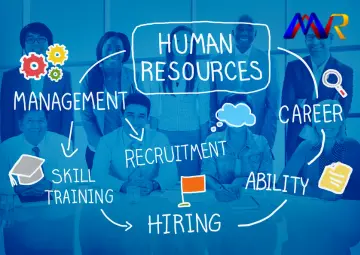
HR professionals handle various duties, from processing payroll and paperwork to implementing company policies. HR may also conduct background checks on candidates to verify whether or not they meet job requirements; create compensation and benefits packages such as health insurance and 401(k) matches; conduct salary surveys to gauge competitive offerings among similar businesses, create compensation packages that reflect this; as well as conduct salary surveys on similar firms to ensure the package remains relevant and competitive with similar offers from other businesses.
Human Resources also plays an essential role in providing employees with training and development opportunities, including classroom courses and on-the-job instruction. HR also offers career paths to guide employees toward advancement within their organizations.
Legal Compliance is another essential function of Human Resources since workplace regulations can change quickly. HR professionals ensure they stay abreast of such developments and inform other company members when new laws take effect, keeping the organization compliant and safeguarding employee rights while saving the company money from fines or lawsuits.
Roles of Human Resources (HR)
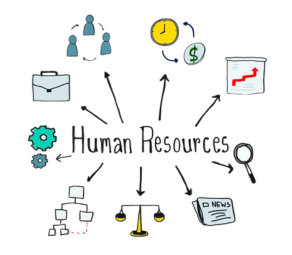
HR professionals are responsible for creating workplace policies that comply with legal regulations while meeting company culture needs. They also manage benefits programs, including negotiating group health coverage rates or working with 401(k) administrators. Some smaller organizations may even employ HR practitioners solely as payroll administrators.
Recruitment is one of the most critical responsibilities of HR specialists. It encompasses advertising open positions, screening applicants, conducting interviews, and working closely with managers who make hiring decisions. HR specialists are also responsible for onboarding new employees with accounts, equipment, and company information and providing an orientation process.
HR representatives act on employees’ behalf, protecting them from discrimination or harassment and rectifying issues when they arise. HR also keeps abreast of external factors that might influence the business, such as changes to employment law and trends in employee benefit programs; some companies have even taken to encouraging diversity, equity, and inclusion (DEI) measures that require HR departments to design policies and programs by such changes.
Historical Evolution
Human Resources have evolved significantly since their initial conception. HR professionals have transcended the role of managing ‘people issues’ to become strategic business partners, empowering sound decision-making and goal achievement. Modern organizations rely heavily on HR processes such as recruitment and staffing, compensation and benefits administration, training, and development to function smoothly.
Initial personnel departments emerged during the early 20th century due to industrial expansion that necessitated businesses employing more specialized employees than were traditionally available through tradespeople. At the same time, unions and welfare workers associations emerged to address working conditions and labor issues. Frederick Taylor’s scientific management principles became popular; their focus on efficiency and productivity greatly influenced how personnel departments operate today.
As HR departments expanded, their responsibilities grew – workforce planning, recruiting and hiring, compensation and benefits, labor relations compliance, and government regulation compliance became part of their purview. Moreover, HR has been proactive in adapting to social changes, such as anti-discrimination laws, instilling confidence in the organization’s ability to navigate such changes.
At one time, human resources departments were typically managed by women who provided essential HR functions like hiring and firing employees, processing payroll, and making coffee. However, their scope has broadened considerably; an efficient team may include a senior VP, HR Directors, and specialists focused on talent acquisition, employee retention, diversity & inclusion issues, and HR technology/systems solutions.
HR leaders have become increasingly focused on building talent pipelines to ensure continuity of leadership when key figures retire or leave the company. Their teams may also develop mentorship and training programs for future leaders.
Core Functions
Human resources departments play a crucial role in recruiting talent, marketing the company to candidates, and onboarding new hires into their workplace—also known as onboarding. HR departments also prioritize the well-being of employees, adhering to laws and regulations that affect employee treatment, such as creating healthy working environments and policies that support staff mental, physical, and financial well-being, demonstrating care and appreciation for the workforce.
HR departments are charged with recruiting top talent by offering competitive compensation packages that entice employees. This may include setting pay ranges, conducting salary surveys, and negotiating with vendors administering insurance programs such as 401(k)s or healthcare coverage. Dedicated payroll and benefits teams may exist in larger organizations, while smaller firms often outsource this work.
An essential task of any company is ensuring they have abundant potential leaders to draw upon should key personnel retire or depart for other opportunities. This requires mentoring and preparation programs for newcomers wishing to assume leadership positions within the business. This indispensable function allows the company to operate without disruption due to any gaps in service or leadership.
HR professionals are vital in resolving conflicts and upholding company standards by administering discipline, conducting performance reviews, and producing reports. This information allows HR to evaluate whether policies work effectively or need revision. HR departments have become more adept at crafting DEI strategies as employers become aware of the benefits diversity and inclusion can bring to their teams. Training programs, recognition schemes, and team-building activities that bring people from varied backgrounds into one workforce are all ways of increasing productivity and creating an improved working environment responsive to customer requirements.
Role of Human Resources in Organizational Success
Nearly all businesses—whether manufacturing shoes, selling cars, or providing IT services—depend heavily on people for success. Without dedicated employees who put in hard work every day, businesses would simply cease operating. That is why any organization should prioritize building and nurturing its human capital pool through human resources management, which provides guidance and assistance throughout its operations.
No matter the industry, Human Resource (HR) departments are responsible for hiring and training new employees, managing payroll, complying with employment laws, and handling special projects related to diversity or talent management. Depending on the size of their employer’s company, HR may specialize in certain areas, such as diversity or inclusion management or talent management.
Human resources play a vital role in ensuring that employees at any company are happy and productive. Human resources managers can play their part by helping employees find a suitable match and offering opportunities for growth and development. This may involve creating a positive corporate culture and offering employee training that enhances performance.
HR is also responsible for ensuring Compliance with local, state, and federal employment regulations. Its primary task involves investigating complaints of sexual harassment, discrimination, retaliation, or workplace misconduct and responding accordingly. Furthermore, regular audits are performed to evaluate compliance levels and identify potential issues that must be resolved in collaboration with senior management.
Challenges and Trends
HR professionals have an increasing responsibility to foster digital dexterity among their workforce. If HR team members need to gain the skills to navigate software applications effectively, inaccuracies in data or noncompliance issues could hinder business operations and growth. With the globalization of businesses, the increasing diversity of workplaces poses greater challenges to workforce management and inclusion. It has never been more essential that HR has an integrative approach when managing workforce management and inclusion strategies.
Employees’ training and professional development require ongoing development as an area that requires attention, with employees needing internal training programs and external educational opportunities designed to enhance skills. This function immensely affects organizational culture because it sets the tone for employee engagement and overall company culture.
HR is responsible for overseeing compensation and benefits as part of their duties, such as employee salaries, bonuses, travel expenses, and health insurance coverage for their staff. This plays a crucial role in recruiting top talent and maintaining a competitive edge in the job market.
Companies must comply with local and international employment regulations as their workforces diversifies. This can be an ongoing task due to changing laws or new policies being put in place. Workers often seek better wages and working conditions, which may lead to strikes or industrial action. Therefore, HR must establish and nurture positive relations with labor unions. HR must ensure employee productivity and morale remain high while reducing workplace disruptions. Furthermore, HR should take measures to increase retention rates through career paths, mentorship programs, and employee motivation programs that reward employees for staying with the company.
The Future of Human Resources
Employees are the heart and soul of any successful business, so HR plays an essential role in caring for and protecting them, helping each member achieve maximum performance. HR professionals face a delicate balancing act between policies, procedures, new technology, business needs, and employee wants—it can be quite an undertaking!
Human Resources departments are essential in recruiting, training, and setting clear employee expectations. Their primary responsibility is creating an inviting, inclusive, and supportive workplace culture for their staff members while upholding local, state, and federal employment laws.
Career management and employee development—commonly referred to as career pathing—is another crucial function. Companies use it to show employees how their ambitions and professional growth align with those of the organization, increasing morale, productivity, engagement, and motivation among workers.
HR is also responsible for designing an equitable pay system. This involves conducting salary and wage surveys to ensure the company’s salaries are competitive in the marketplace. When setting salary levels, HR also considers the organization’s financial status and projected revenue projections.
As our world becomes more globalized, HR must understand how climatic factors impact work patterns and create policies to reflect this. For instance, during periods of extreme heatwaves, it may be wise to implement policies encouraging employees to work from home or in different locations to prevent productivity losses. HR professionals must also remain up-to-date on changes to immigration or visa laws that impact international workers who can be hired and retained.


